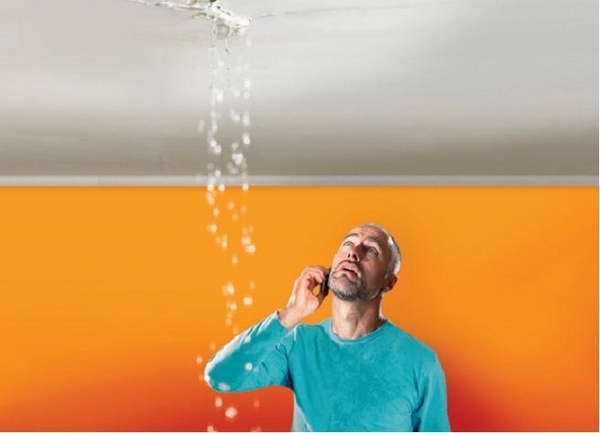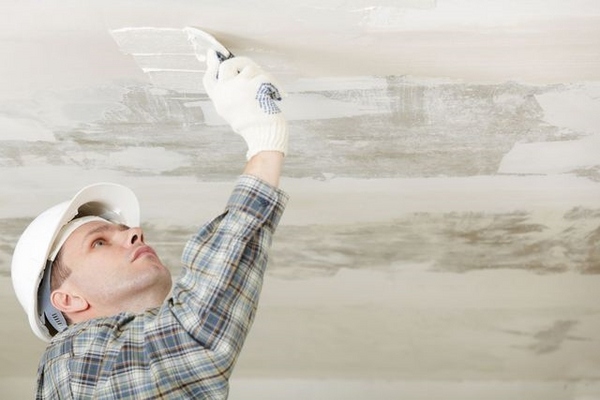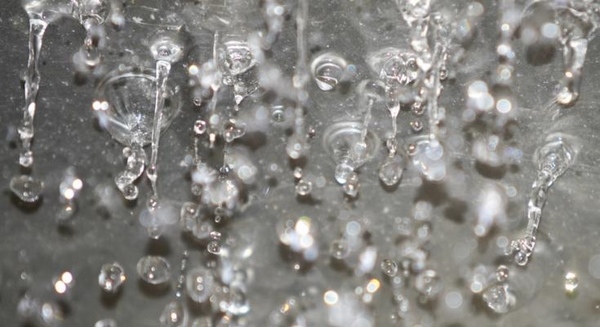
What are the most frequent ceiling water damages and what causes them? This is only one side of the question.
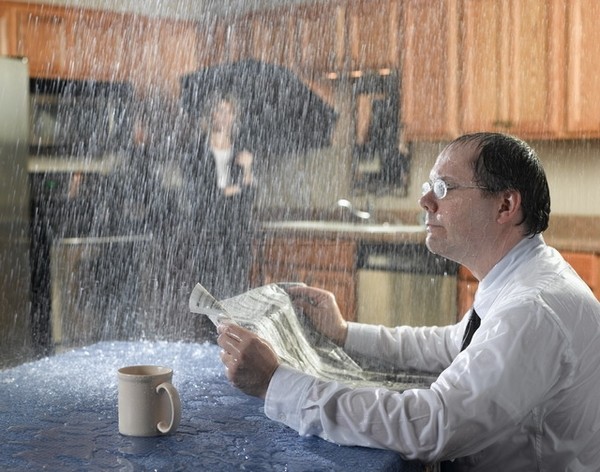
We also need to know how to cope with ceiling damages caused by water and how to repair them.
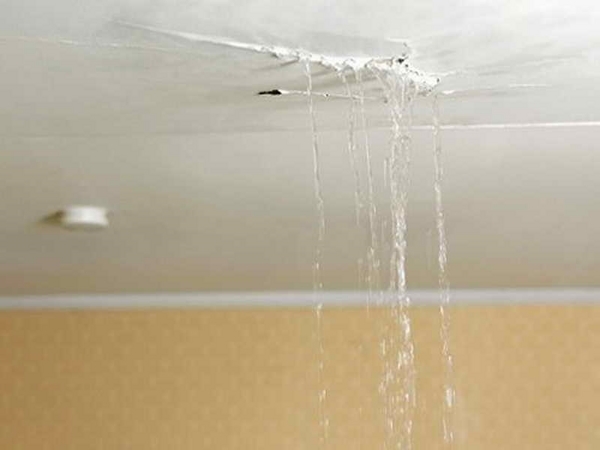
Sudden causes that will affect the ceiling of the home are usually force majeure circumstances and there is no way to control them.
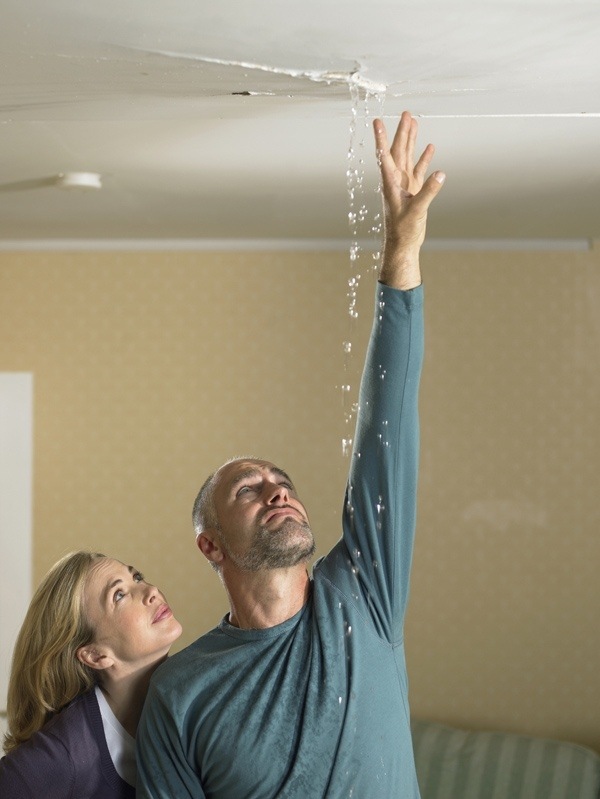
However, water damages often appear as a result of a long term problem which remained unnoticed or neglected.
Causes of ceiling water damage
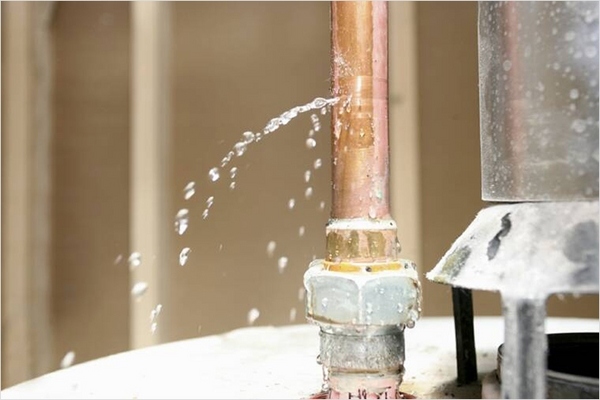
One of the most frequent causes of ceiling water damage is leaking pipes. The pipes are not visible to the occupants and a loose connection in the toilet or washing machine in the apartment upstairs will shower your home.
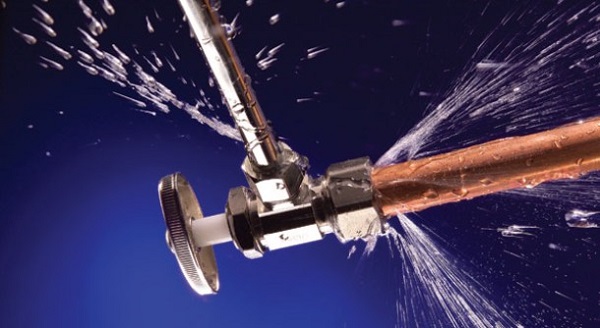
Sometimes such leakage is due to metal fatigue, or freezing weather but whatever the reason, there is only one way to cope with the problem – the pipe has to be changed.
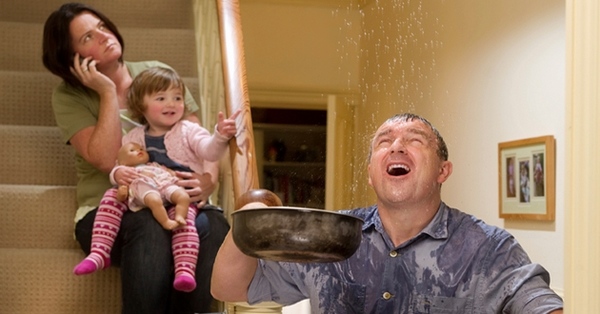
You need to find the water source, stop the water and contact a plumber immediately.
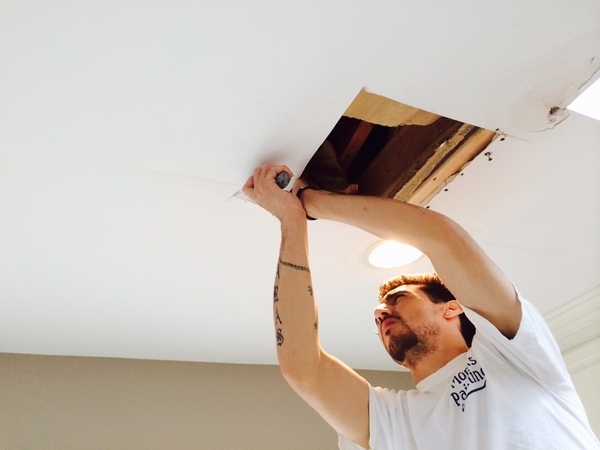
In some cases the repair may require to remove part of the ceiling in order to find where exactly the leak is.
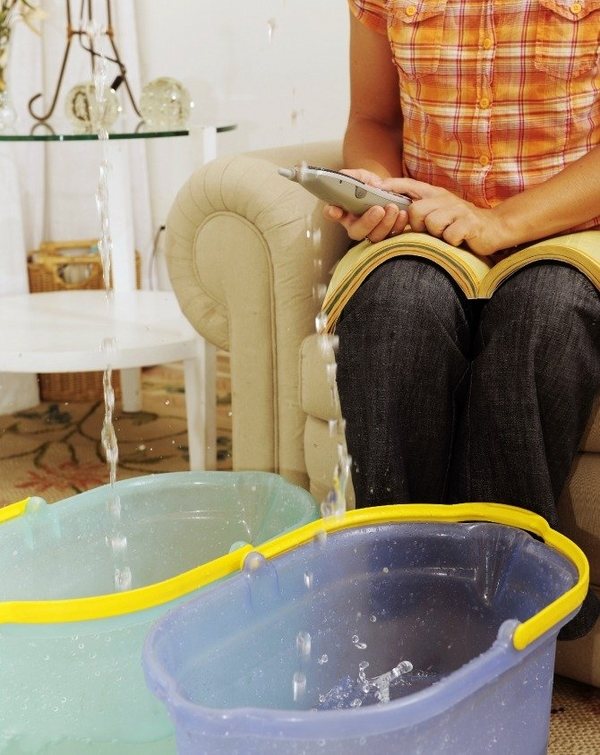
Sometimes water would penetrate from the roof due to missing or worn out shingles, missing or damaged caulking around bathtubs, showers and sinks, etc.
How to cope with ceiling water damage?
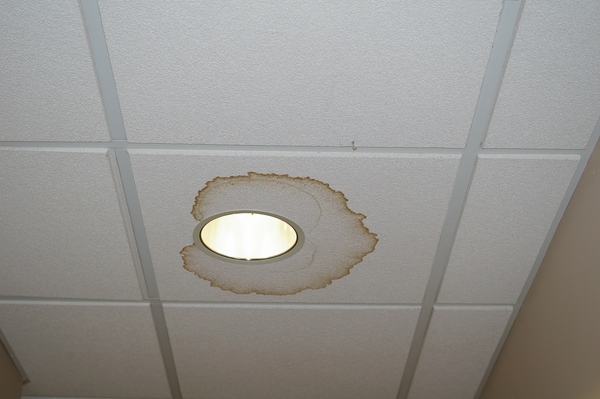
It is important to recognize the signs of ceiling water damage. Most often, the indications for a serious problem are odors, stains and discoloration, blistering or peeling walls, mold and mildew.
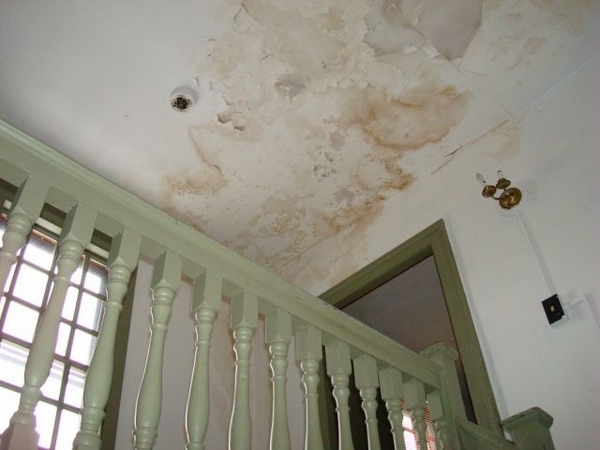
Once the reason for the problem is determined, you will have to cope with fighting the damages. Mold and mildew are not removed if you just painted them over.
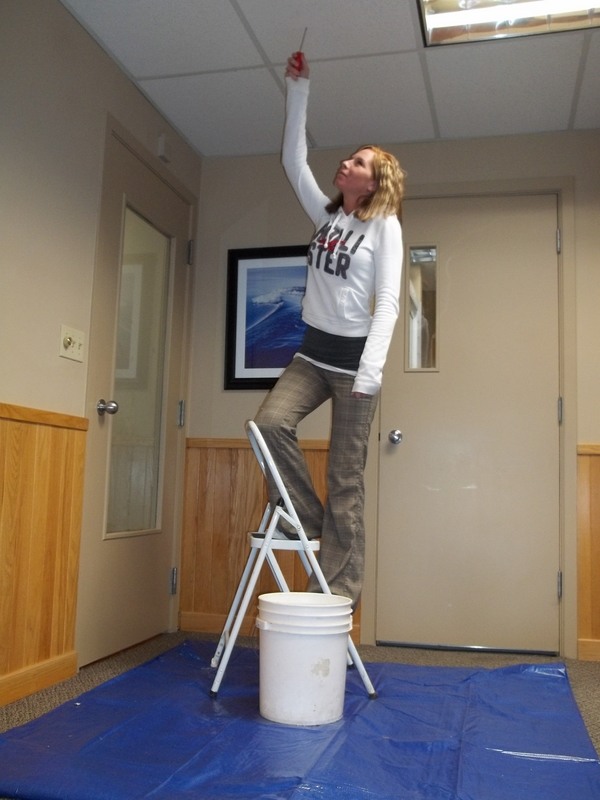
These need to be cleaned thoroughly before any other work is done on the affected area.
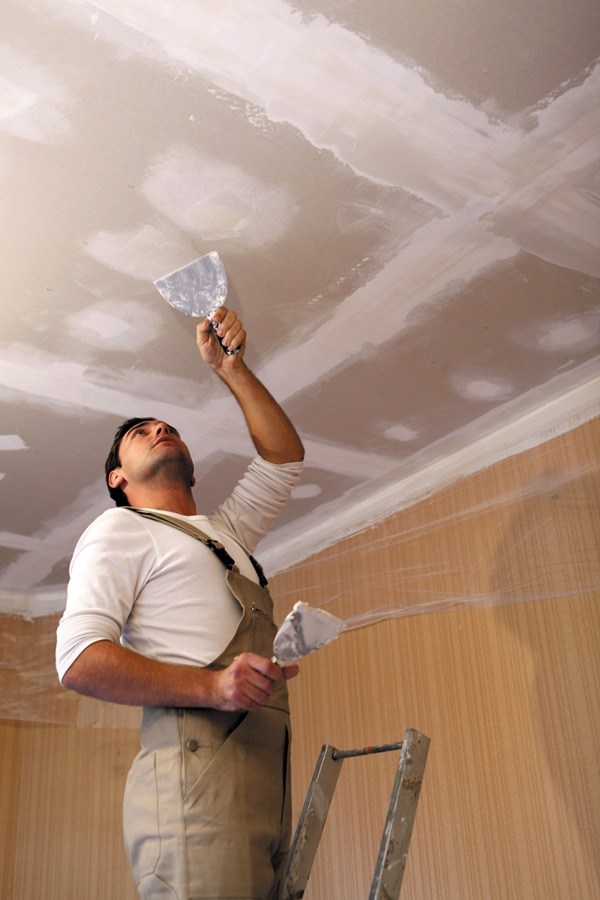
Peeling or damaged paint should be removed before applying new one if you want to remove stains and discoloration.
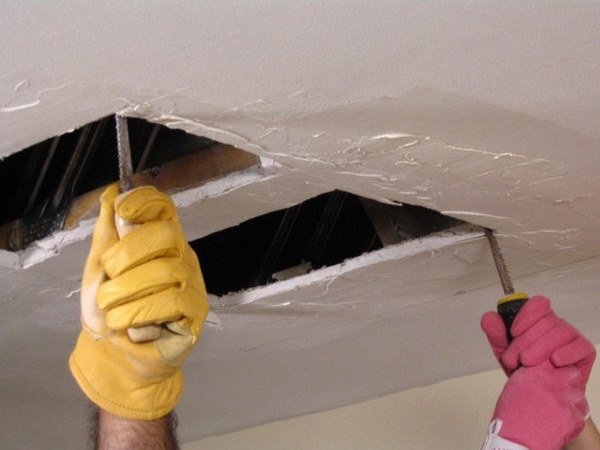
To remove ceiling water-damage from dry wall, it is better to hire professionals as this is often a hard job.
